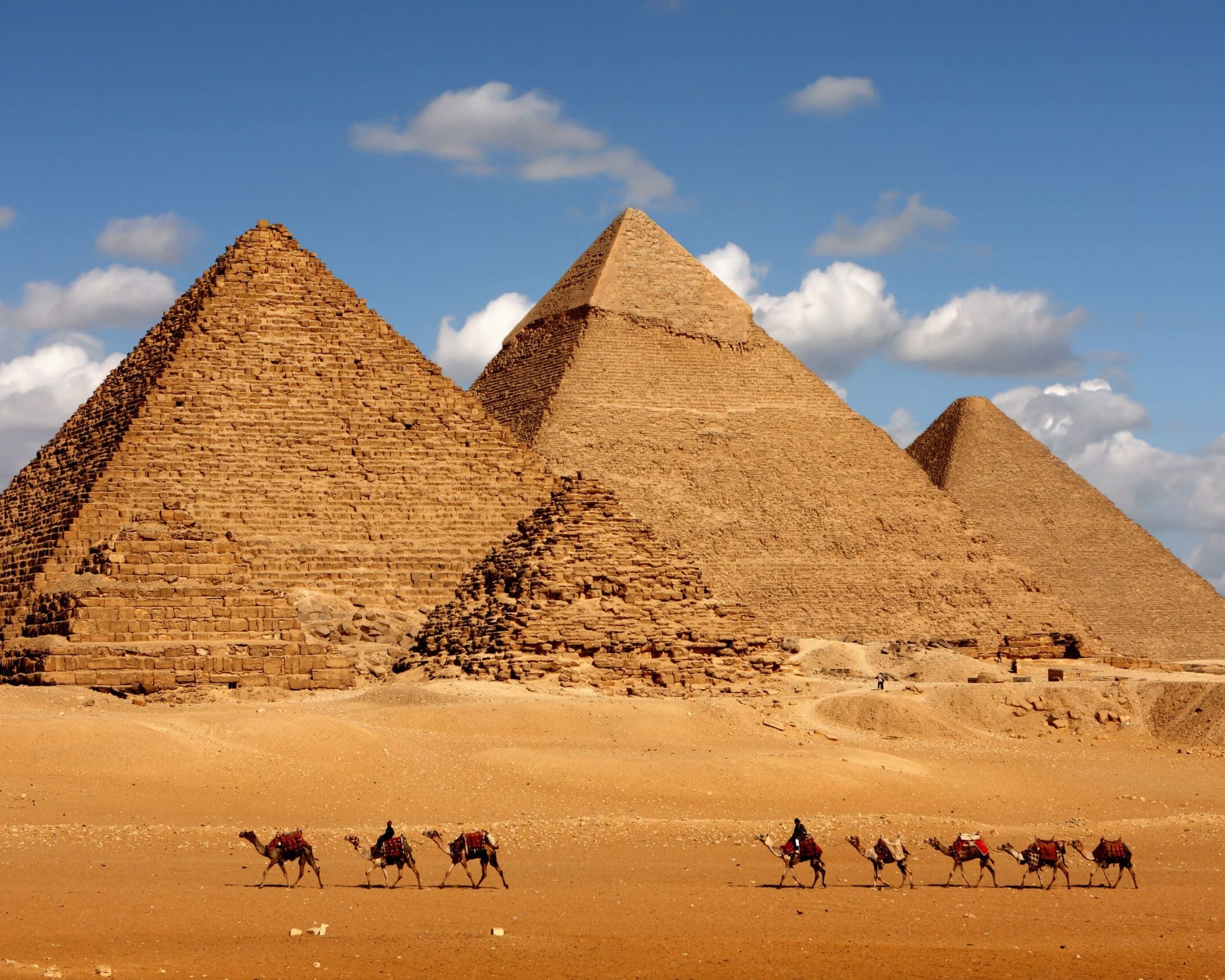Embark on an epic adventure in Egypt, a land where ancient marvels and modern wonders coalesce beneath the endless desert sky.
Here, the pyramids rise from the sands as timeless sentinels, the Nile River courses through the heart of civilization, and bustling markets whisper tales as old as time. Egypt invites you to explore its rich tapestry of history, culture, and natural beauty—from the spellbinding treasures of the Pharaohs in Cairo to the mesmerizing reefs of the Red Sea.
Experience the warmth of Egyptian hospitality, savor the flavors of its sumptuous cuisine, and stand in awe of monuments that have captivated travelers for millennia. Welcome to Egypt, where every step is a story, and every horizon promises discovery.
Join us in uncovering the wonders of this enchanting island, where each discovery is a treasure, and every moment is a new adventure waiting to happen.

The Best Time To Visit
The best time to visit Egypt is during the cooler months from October to April. During this period, the temperatures are more pleasant, making it ideal for exploring Egypt’s ancient monuments and attractions without the intense heat of the summer months. The cooler weather is perfect for visiting iconic sites such as the Pyramids of Giza, the Valley of the Kings, and the temples of Luxor and Aswan, as well as for cruising down the Nile River.
From December to February, it’s winter in Egypt, and while this is the peak tourist season due to the mild weather, it’s also when Egypt’s attractions are most crowded. If you’re looking to avoid the biggest crowds while still enjoying good weather, consider visiting in the shoulder seasons of October-November or March-April, when temperatures are still comfortable, but tourist numbers are lower.
Keep in mind that while the days are pleasantly warm in these months, nights can be cool, especially in desert areas, so packing layers is advisable. Additionally, the Sinai Peninsula and the Red Sea resorts can be visited year-round if you’re interested in beach holidays and diving, with water temperatures being mild even in winter.
What To Know
In Egypt, the official language is Egyptian Arabic.
For most travelers, knowing English should suffice for communication in tourist-friendly areas, though learning a few basic phrases in Egyptian Arabic can be appreciated by locals.
The currency used in Egypt is the Egyptian Pound, abbreviated as EGP. It is subdivided into 100 piastres.
For travelers, it’s advisable to have some local currency on hand, especially in smaller towns or for smaller purchases, though credit cards are widely accepted in hotels, restaurants, and larger shops in urban and tourist areas.
Safety in Egypt can vary and is often a concern for potential visitors, but many travelers have visited Egypt without incident, enjoying the country’s attractions safely.
The Egyptian government has made significant efforts to enhance security, especially in tourist areas, historical sites, and major cities like Cairo, Luxor, and Aswan, recognizing the importance of tourism to the national economy. Tourist police are often visible in these areas to provide assistance and ensure safety.
Common advice includes avoiding certain areas, particularly regions bordering Libya and the Sinai Peninsula (excluding the Sharm el-Sheikh coastal area), due to risks of terrorism and political unrest.
Public transport in Egypt encompasses a variety of options, including metros, buses, trains, and microbuses, catering to different travel needs within and between cities.
The Cairo Metro is a notable feature of Egypt’s public transport system, offering a fast, reliable, and affordable way to navigate the capital. It’s one of the few metro systems in Africa and covers significant parts of the city, including a line to Giza.
Buses and microbuses are widespread in urban and rural areas, providing extensive coverage. While buses offer scheduled services, microbuses are more flexible, operating on a fill-and-go basis, which can be less predictable for travelers unfamiliar with the system.
For intercity travel, Egypt’s national railway network offers services connecting major cities across the country, including overnight sleeper trains between Cairo and Luxor/Aswan, popular with tourists visiting the ancient sites of Upper Egypt.
While public transport in Egypt is affordable and extensive, it can also be crowded and may not always meet international safety standards. Taxis and rideshare apps are also widely used for more convenient and direct travel within cities. For exploring areas not covered by public transport, renting a car or booking tours can be a good option.
